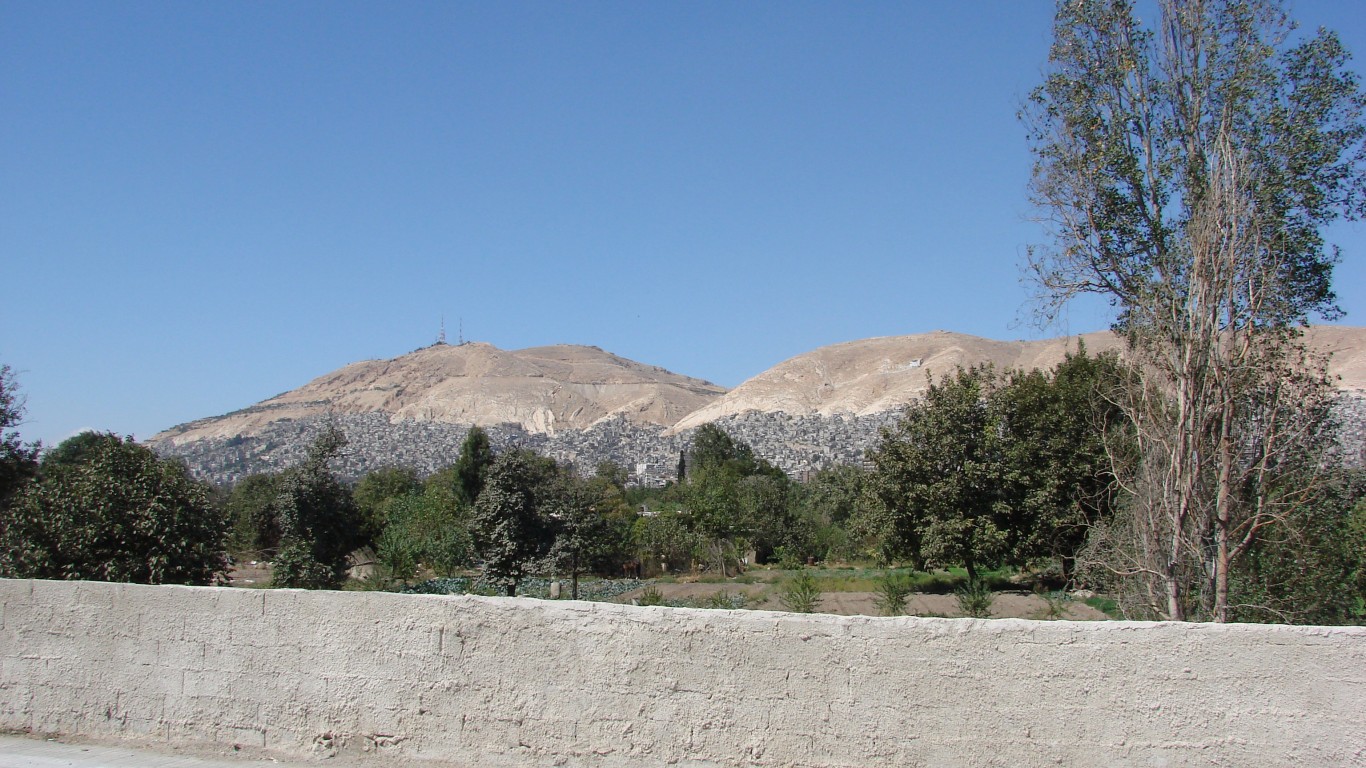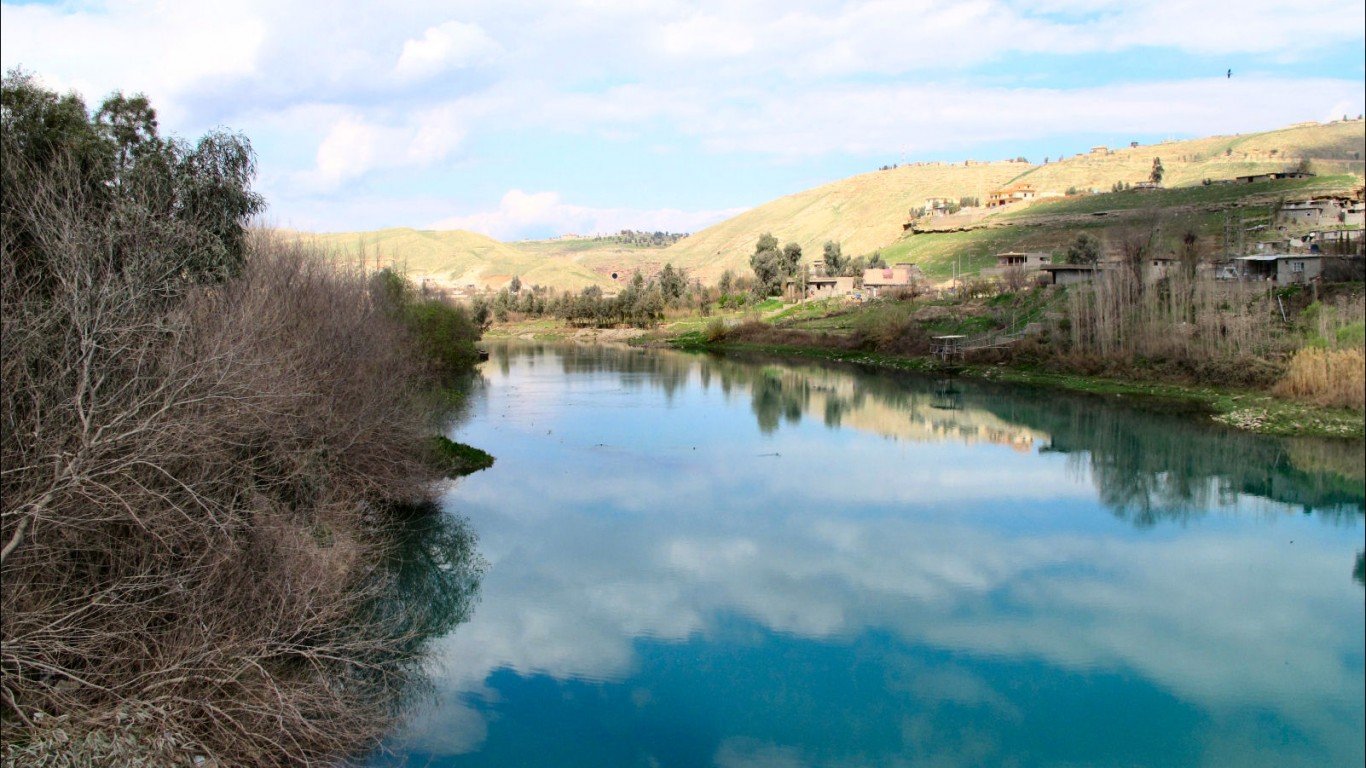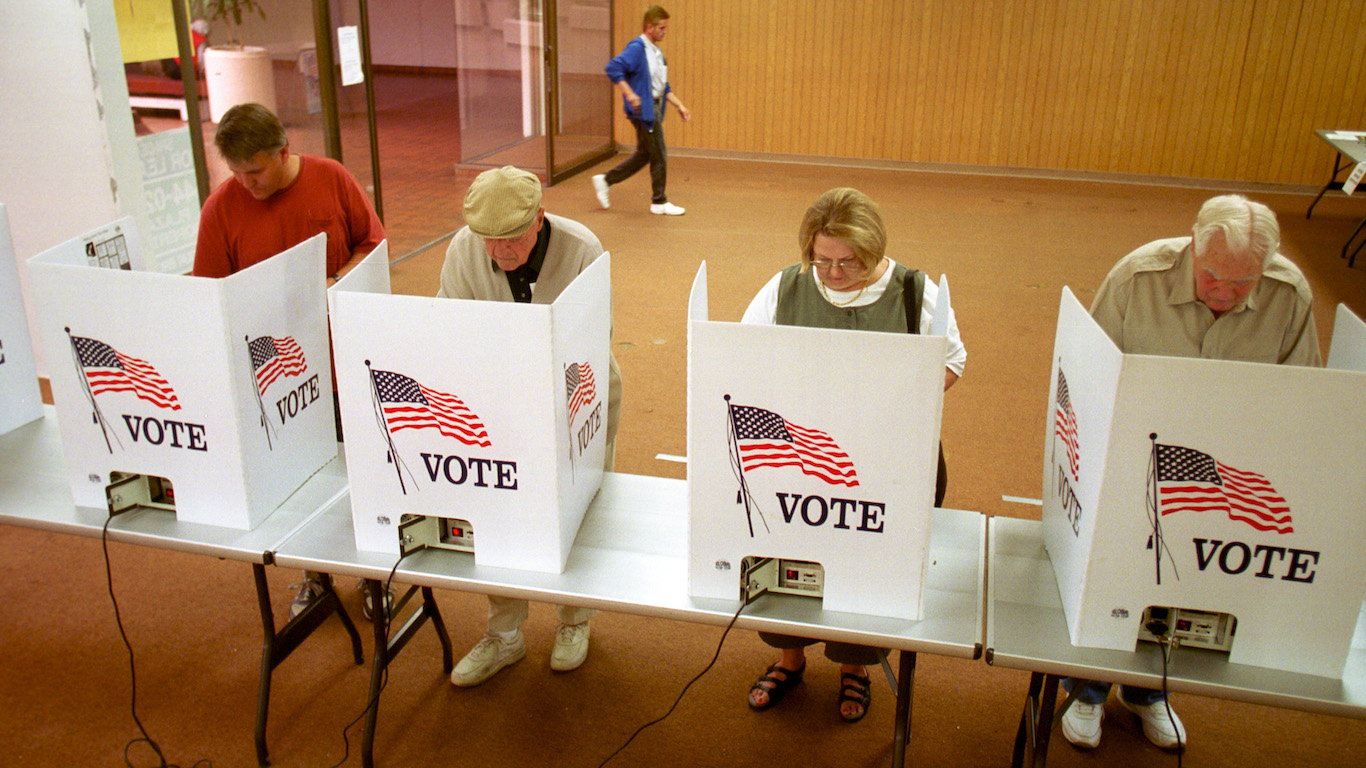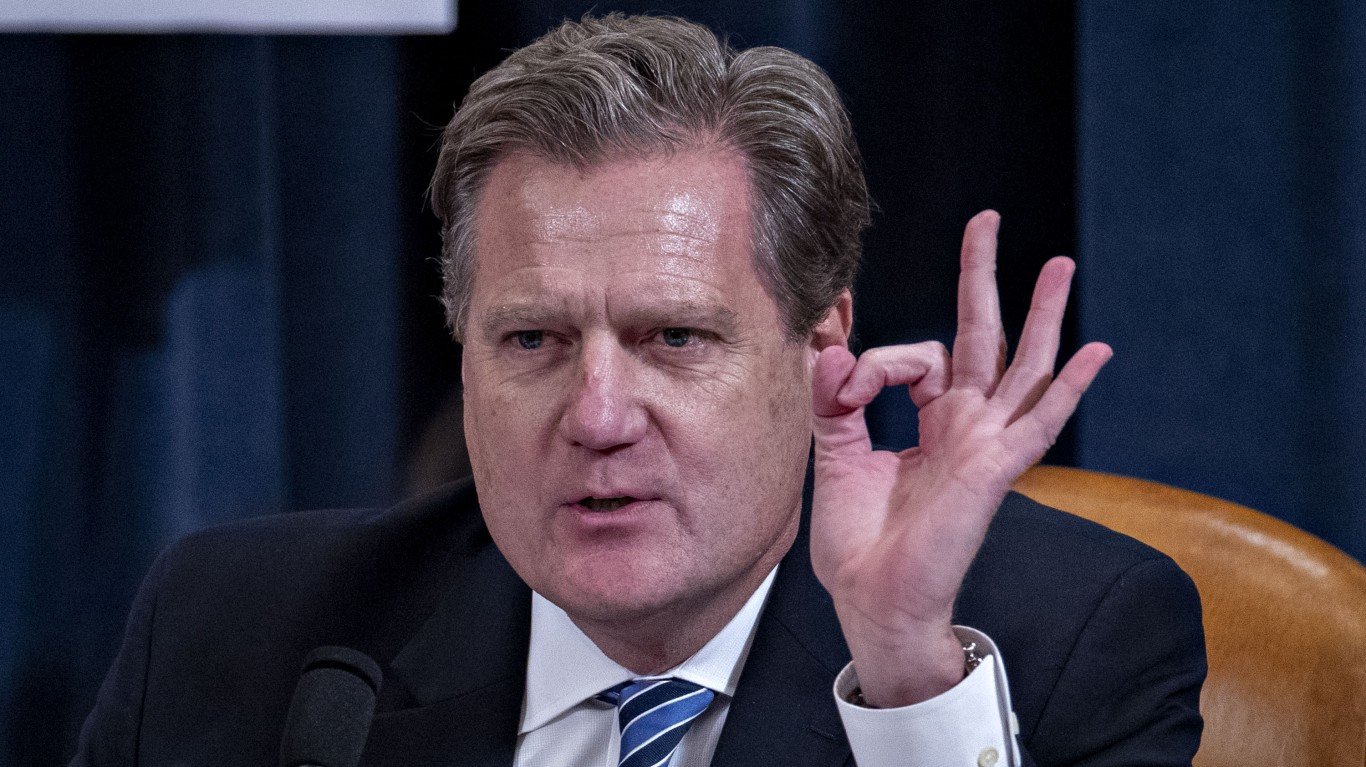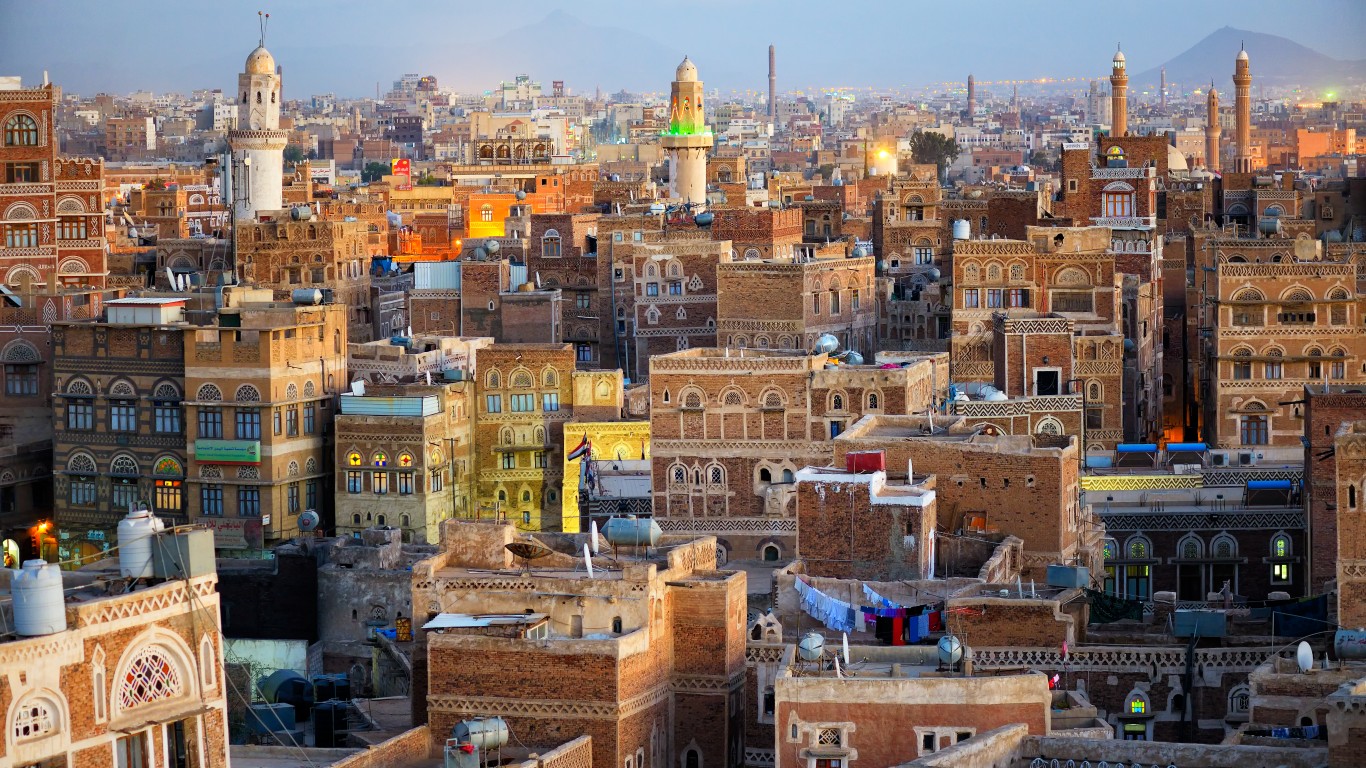

Fearing societal unrest and loss of control of their populations, governments presiding over nearly 2.8 billion of the world’s people have the power to toggle internet access on the whims of kings, military juntas, or presidents for life.
These blackouts wreak havoc on businesses that rely on connecting with the outside world, and they are often implemented to hobble the work of journalists and activists or to prevent protestors from coordinated actions through social media apps. A surprisingly large number of them shut down the internet during academic exams to curb cheating.
These shutdowns can also occur regionally within a country, from drought-stricken southwestern Iran to rebel-infused northern Ethiopia. (Ethiopia is among the poorest countries in the world.)
To determine the countries where the government shuts down the internet, 24/7 Wall St. reviewed data on internet shutdowns from the digital civil rights non-profit Access Now’s The Return Of Digital Authoritarianism, Internet shutdowns in 2021. Countries were ranked based on the number of reported government-imposed internet shutdowns in 2021. In the case of a tie, the country with the larger populations was ranked higher. All other data came from the World Bank.
Of the 19 countries with at least two government-imposed internet shutdowns last year, six are located in Africa, five are in the Middle East, and seven in Asia. Cuba, where mobile internet only arrived to its people in December 2018, is the only country in the Americas on this list.
Most of the people living under these stick-swinging internet hall monitors live in India, Pakistan, Bangladesh, and Indonesia. The share of internet users in these 19 countries ranges from 10.4% in the Republic of Chad to 85.9% in Kazakhstan. Most of these people access the web solely through their mobile devices. Iraq has the highest number of fixed broadband connections at 15.5 per 100 people, while a dozen of these countries have only two broadband subscriptions or fewer per 100 people.
The list excludes North Korea, where only a small number of people have access to a closed, sanctioned intranet network through dialup connections. Owning a computer there requires government permission and registration, and few people would be able to obtain one even if they knew what it was. This list also excludes authoritarian countries like China and Saudi Arabia because these countries operate internet firewalls.
Also notably absent from the list is Russia, which blocked access to communications platforms in 2021 through throttling. Authorities have passed new laws in 2022 banning digital and media platforms and tools such as VPNs. Ally Belarus took steps in 2021 to institutionalize its power to block internet access at its discretion. (How free is the press in the world’s richest countries.)
Click here to see countries where the government shuts down the internet
Click here to read our detailed methodology
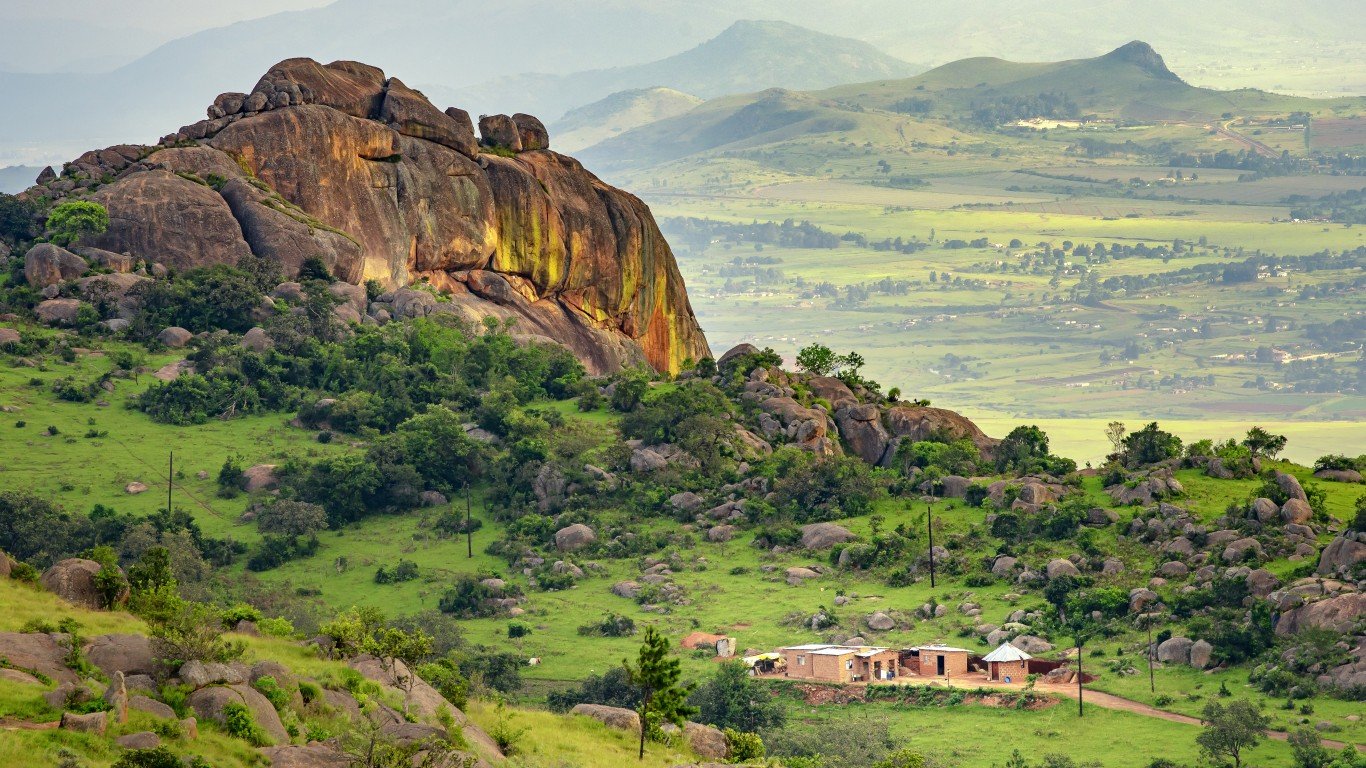
19. Eswatini
> Internet shutdowns in 2021: 2
> Individuals using the internet: 30.3% of population
> Fixed broadband subscriptions: 1.0 per 100 people
> Total population: 1.2 million
The government of this tiny landlocked absolute monarchy in southern Africa shut down the internet at least twice last year in response to pro-democracy protests. Eswatini King Mswati III has been in power since 1986.
[in-text-ad]
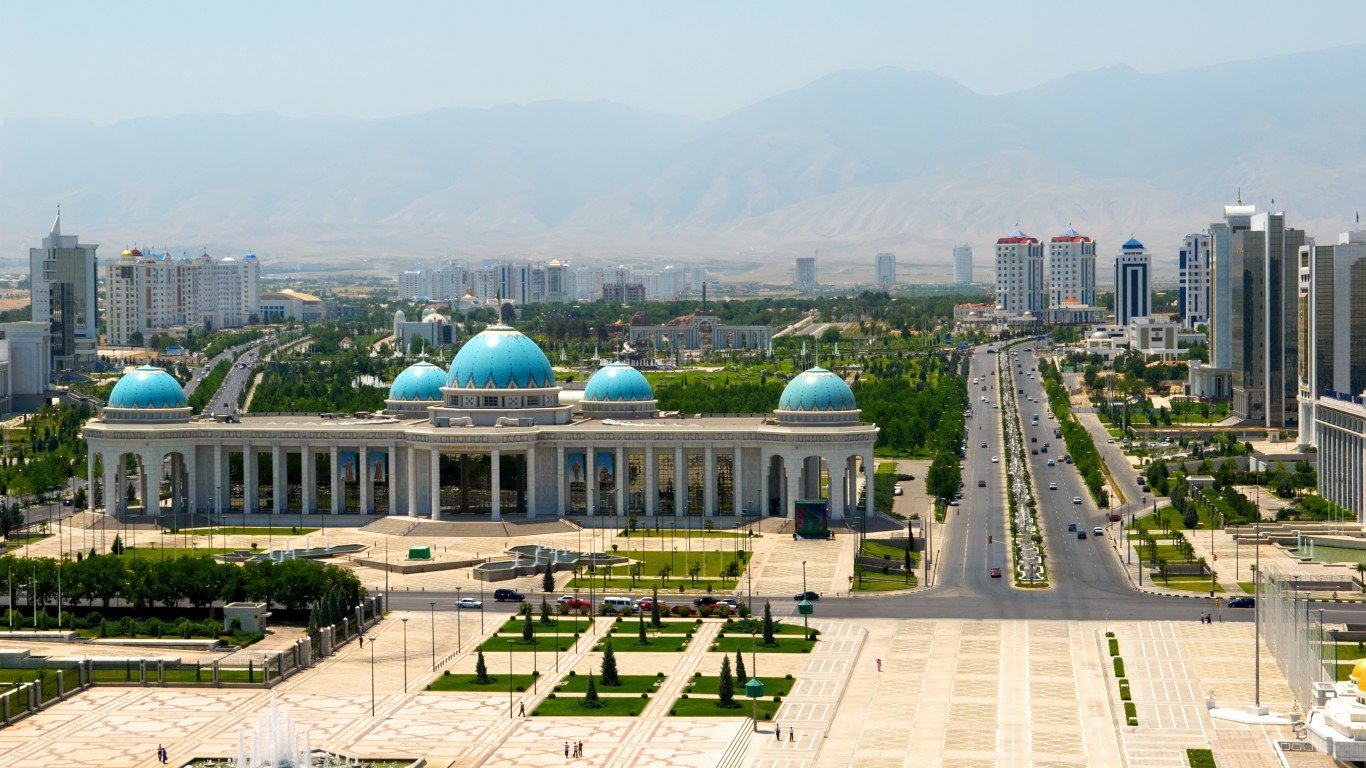
18. Turkmenistan
> Internet shutdowns in 2021: 2
> Individuals using the internet: 21.3% of population
> Fixed broadband subscriptions: 0.2 per 100 people
> Total population: 6.0 million
This isolationist Central Asian country maintains strict control of internet access and cuts access completely in places where protests erupt, as it did for 13 days last year in the town of Khorog. Users must swear on the Quran, the Islamic holy book, not to use VPN circumvention tools before signing up for service.

17. Chad
> Internet shutdowns in 2021: 2
> Individuals using the internet: 10.4% of population
> Fixed broadband subscriptions: <0.0 per 100 people
> Total population: 16.4 million
An Amnesty International report last year said that since 2016, politically motivated and long internet shutdowns totaled nearly 2.5 years out of a five-year period. This country’s military junta is headed by Mahamat Déby, the son of longtime leader Idriss Déby who was killed last year while fighting rebels.
16. Syria
> Internet shutdowns in 2021: 2
> Individuals using the internet: 35.8% of population
> Fixed broadband subscriptions: 8.9 per 100 people
> Total population: 17.5 million
Syria shuts down the internet every spring during its high school examination period, ostensibly to limit cheating. Like other authoritarian states, the Syrian government severely restricts internet access, detains citizens for their online activity, and limits the amount of data residents can use each month.
[in-text-ad-2]
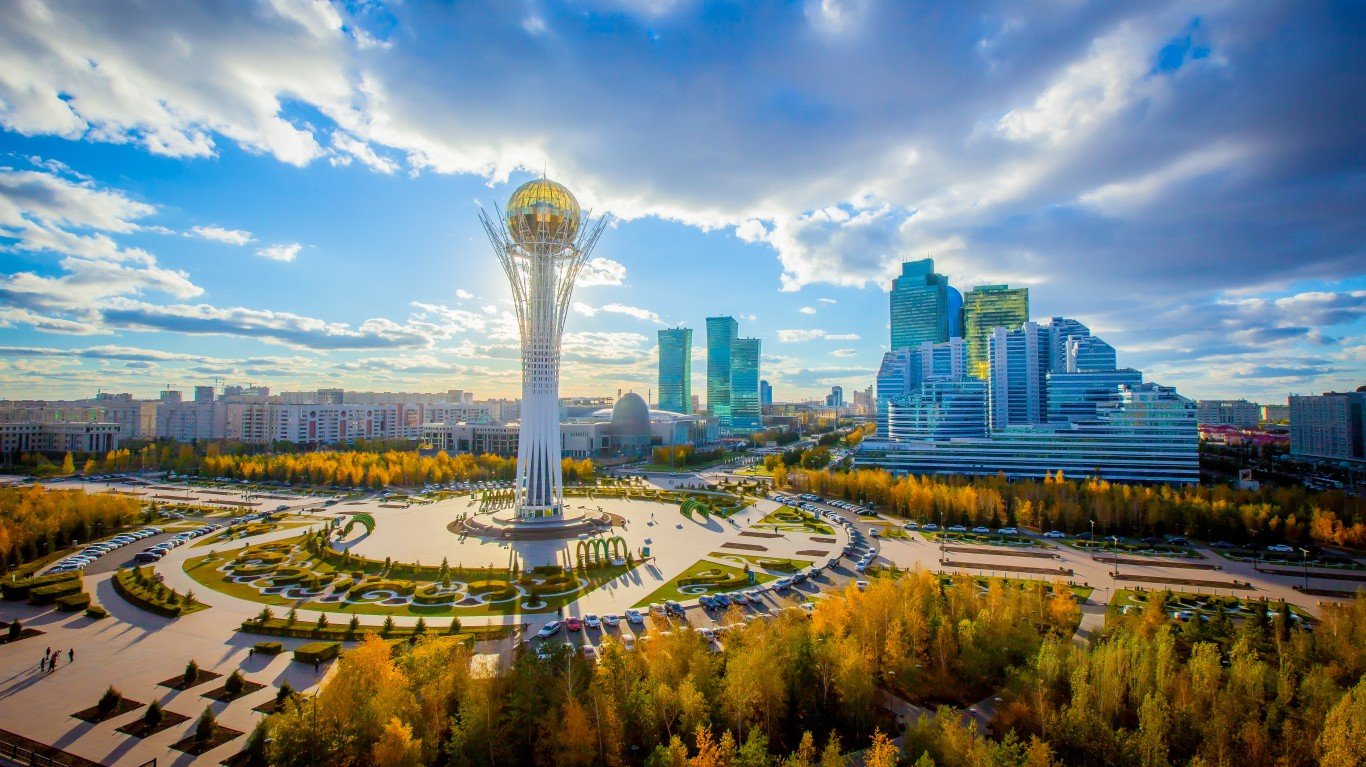
15. Kazakhstan
> Internet shutdowns in 2021: 2
> Individuals using the internet: 85.9% of population
> Fixed broadband subscriptions: 14.0 per 100 people
> Total population: 18.8 million
This large Eurasian country routinely cuts access to the internet and mobile connectivity when mass riots or alleged anti-terrorism operations are taking place. In January, the government shut off the internet nationwide over protests against a sharp jump in fuel prices.
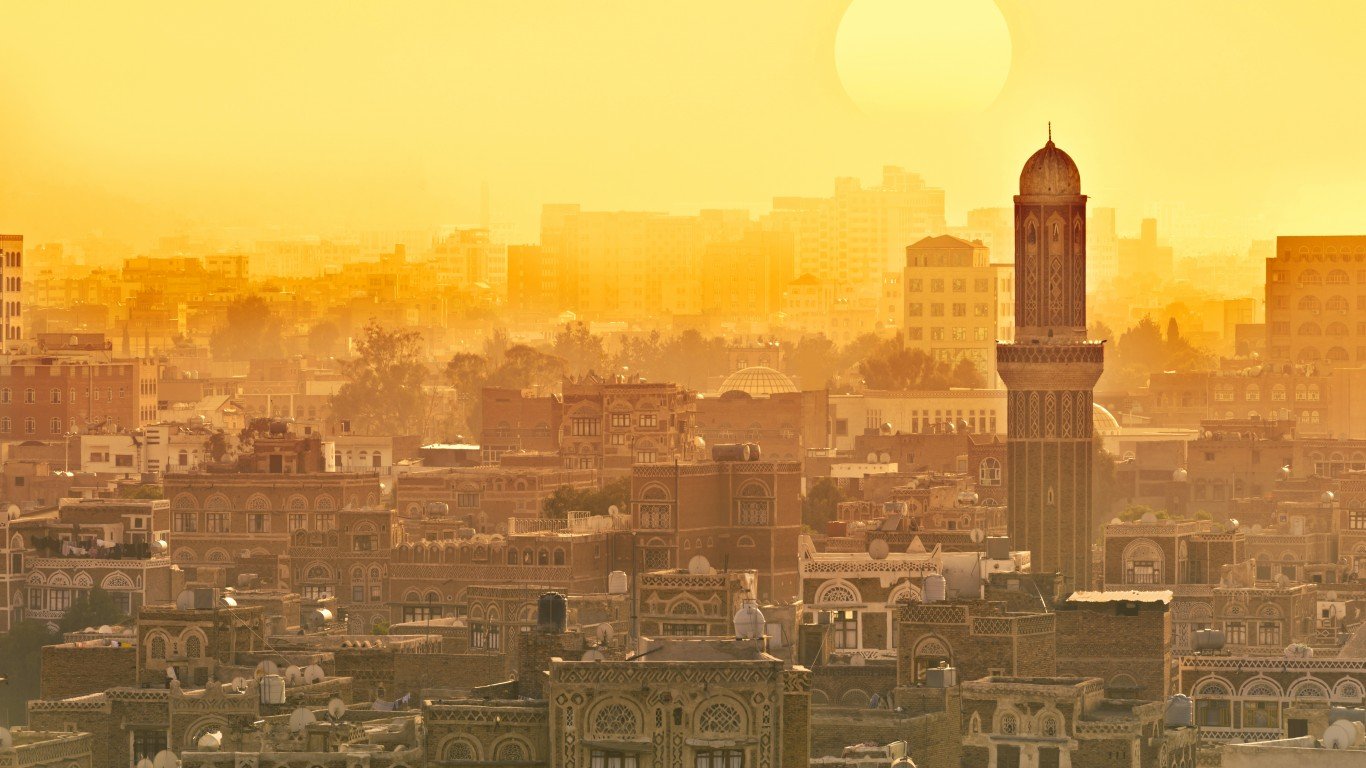
14. Yemen
> Internet shutdowns in 2021: 2
> Individuals using the internet: 26.7% of population
> Fixed broadband subscriptions: 1.3 per 100 people
> Total population: 29.8 million
Amid Yemen’s ongoing civil war, internet access has not only been interrupted by Saudi- and UAE-led air strikes targeting telecommunication infrastructure, but also by warring parties inside the country that shut down access allegedly to hide human rights violations.
[in-text-ad]
13. Iraq
> Internet shutdowns in 2021: 2
> Individuals using the internet: 60.0% of population
> Fixed broadband subscriptions: 15.5 per 100 people
> Total population: 40.2 million
As with most of its neighbors in the region, the Iraqi government strictly controls internet use and routinely shuts down access to its citizens completely. Popular social media sites are blocked whenever massive anti government protests erupt.
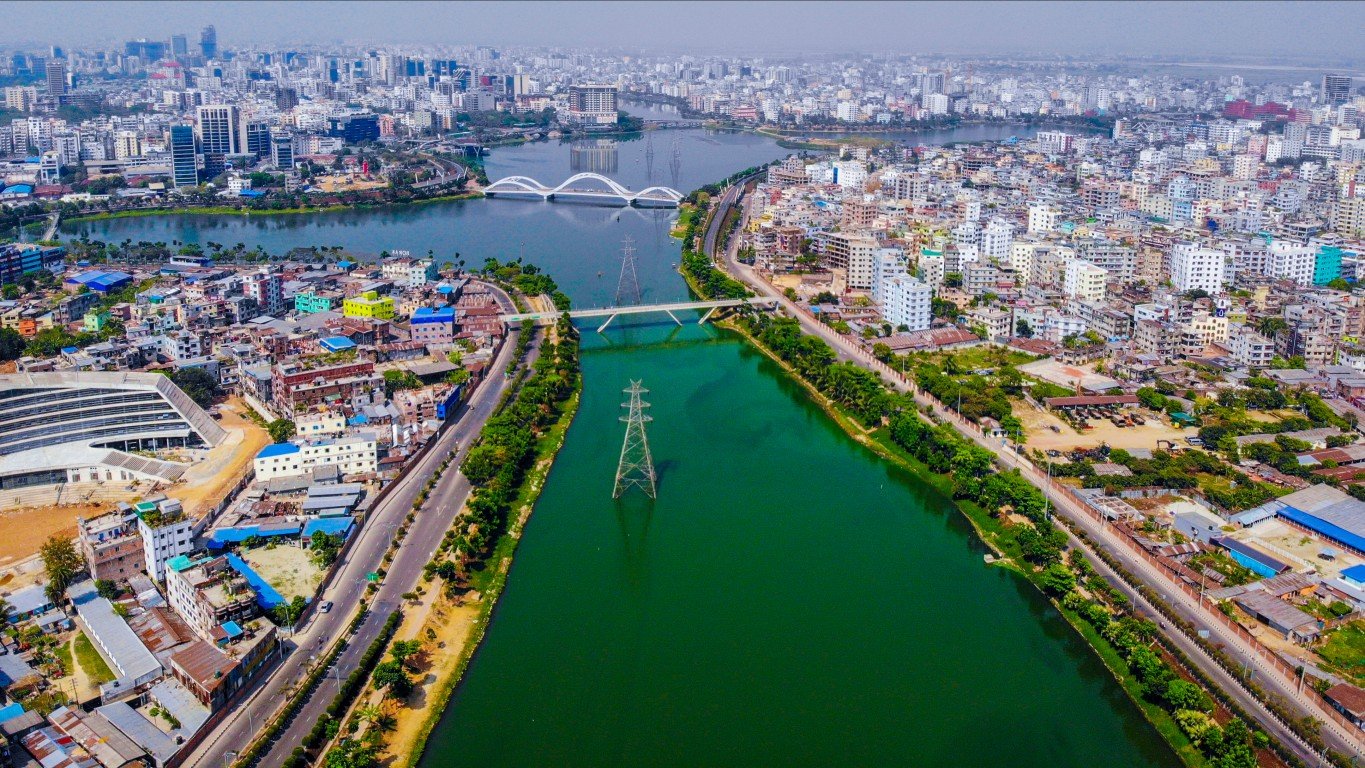
12. Bangladesh
> Internet shutdowns in 2021: 2
> Individuals using the internet: 24.8% of population
> Fixed broadband subscriptions: 6.1 per 100 people
> Total population: 164.7 million
Last October, Bangladesh’s telecommunications regulator ordered the country’s three mobile operators GrameenPhone, Robi Axiata, and Banglalink to temporarily shut down internet service amid heated protests and attacks on temples over alleged sacrilege by members of the Hindu minority. Bangladesh routinely shuts down access to the internet or social media sites during periods of unrest.
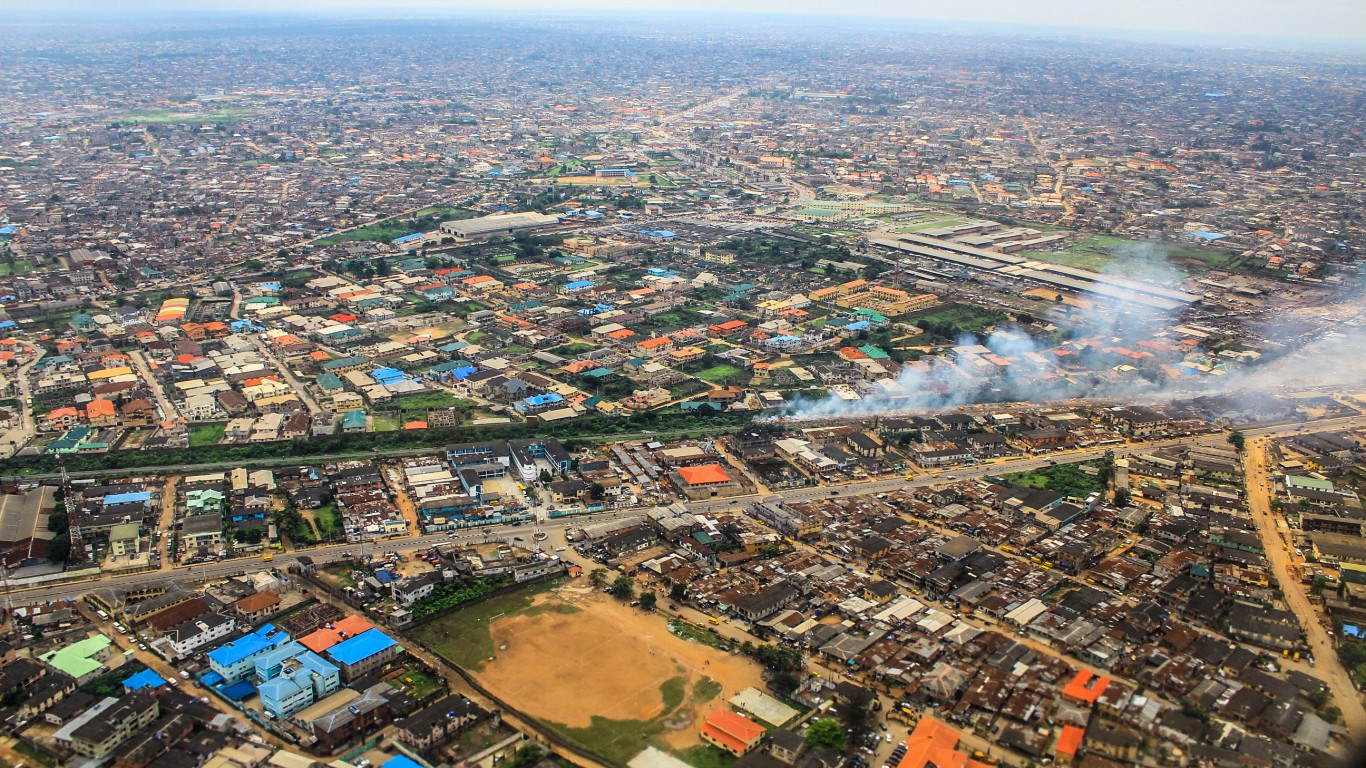
11. Nigeria
> Internet shutdowns in 2021: 2
> Individuals using the internet: 35.5% of population
> Fixed broadband subscriptions: <0.0 per 100 people
> Total population: 206.1 million
Nigeria’s telecommunications regulator ordered mobile network providers to temporarily shut down internet and mobile phone communications last September during anti-kidnapping operations in the country’s northwest. Africa’s largest country by population and economic clout is also weighing a bill that would strengthen the government’s ability to disrupt internet access and block social media.
[in-text-ad-2]
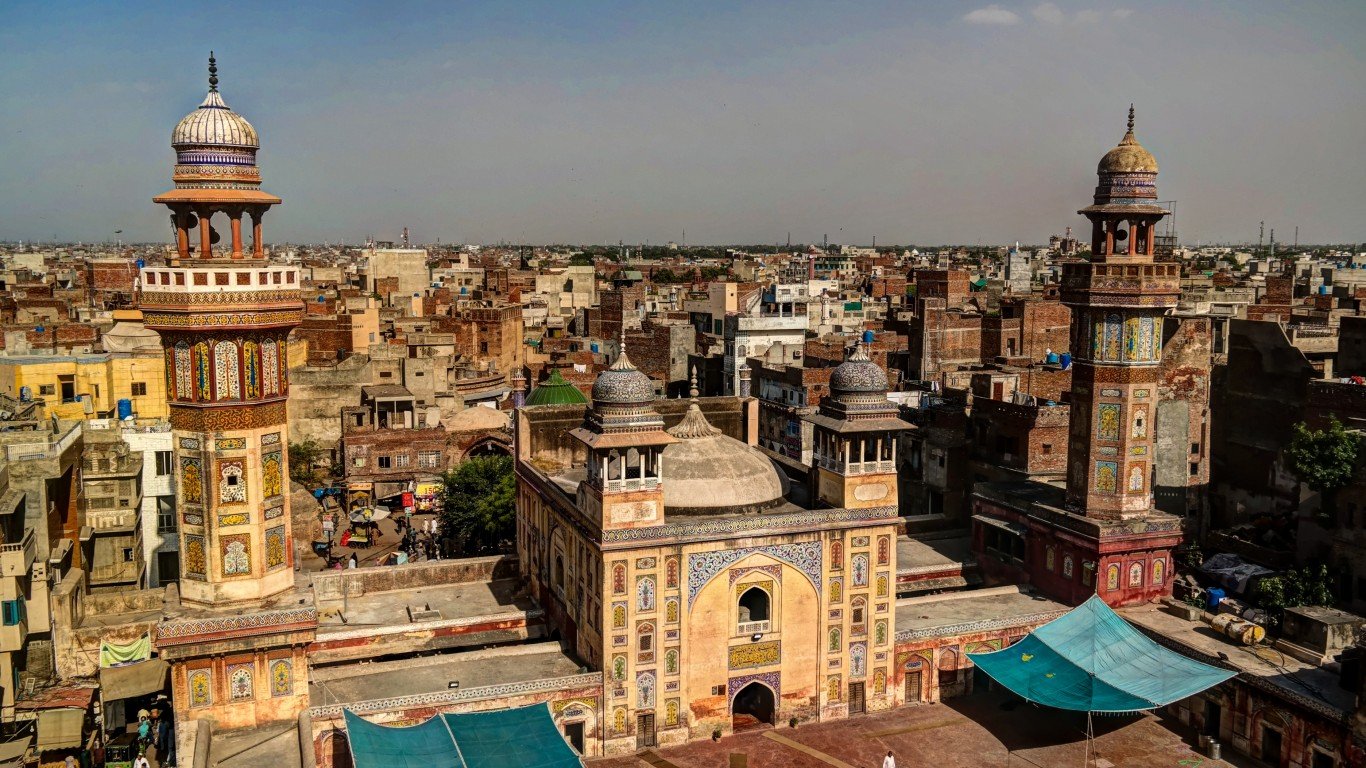
10. Pakistan
> Internet shutdowns in 2021: 2
> Individuals using the internet: 25.0% of population
> Fixed broadband subscriptions: 1.1 per 100 people
> Total population: 220.9 million
In April of last year, Pakistan authorities ordered an hours-long shutdown of social media and instant messaging platforms amid violent protests against France over President Emmanuel Macron’s expressed support for the right of the press to re-published blasphemous cartoons depicting Prophet Muhammad. Pakistan routinely shuts down or severely limits internet access, as it did in January ahead of protests in support of ousted Prime Minister Imran Khan.
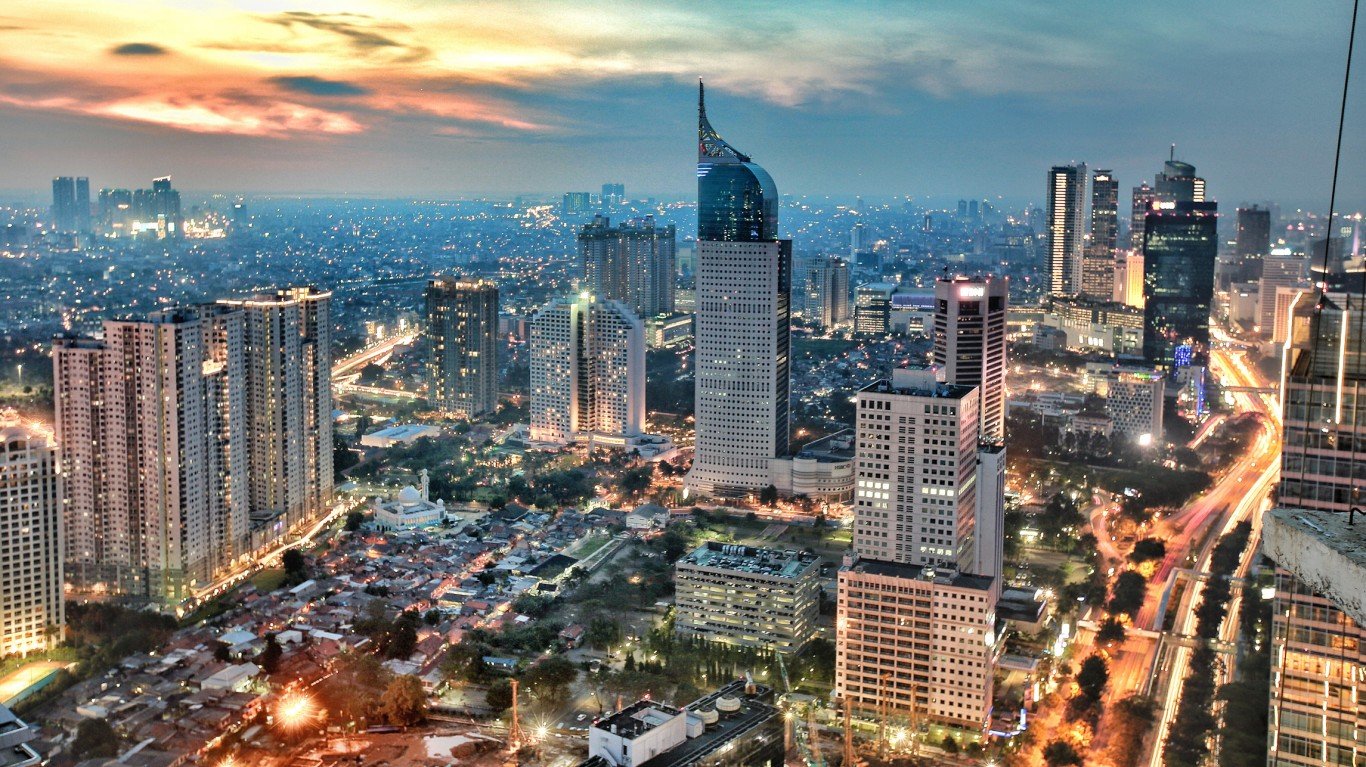
9. Indonesia
> Internet shutdowns in 2021: 2
> Individuals using the internet: 53.7% of population
> Fixed broadband subscriptions: 4.3 per 100 people
> Total population: 273.5 million
The government of Indonesia implemented new regulations in 2020, requiring technology companies to remove content when government or non-governmental entities request it and to give law enforcement direct access to internet users’ data. In October, the country’s high court ruled that Jakarta may lawfully block internet access during periods of unrest, as it has done in the country’s Papua region.
[in-text-ad]

8. Uganda
> Internet shutdowns in 2021: 3
> Individuals using the internet: 19.9% of population
> Fixed broadband subscriptions: 0.1 per 100 people
> Total population: 45.7 million
In January 2021, the Ugandan government temporarily shut down access to the internet hours ahead of a national election, limiting the communications of citizens, opposition party members, and election observers. President Yoweri Museveni defended the move by accusing Facebook of deleting accounts tied to his ruling National Resistance Movement.
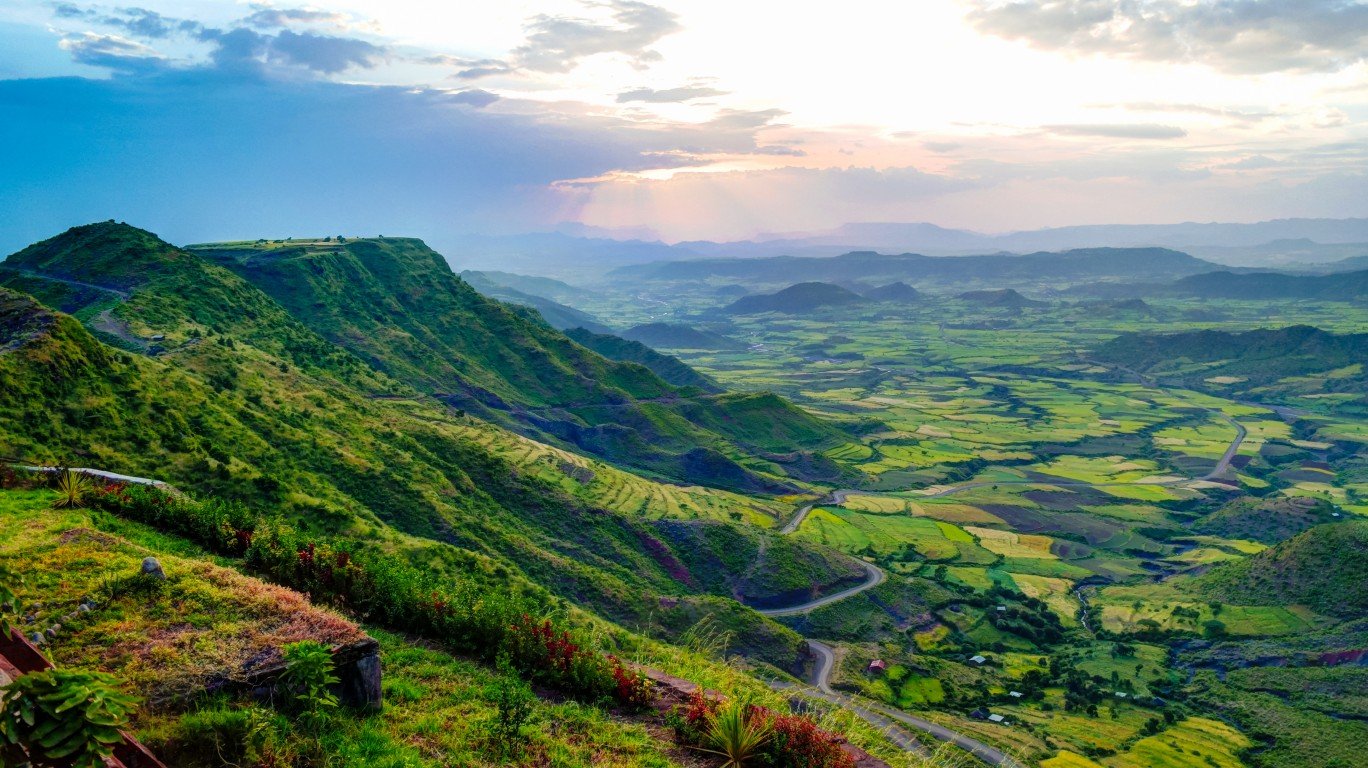
7. Ethiopia
> Internet shutdowns in 2021: 3
> Individuals using the internet: 24.0% of population
> Fixed broadband subscriptions: 0.2 per 100 people
> Total population: 115.0 million
Ethiopia routinely shuts down internet access and limits or completely restricts internet and mobile communications in the northern Tigray Region where government forces are clashing with Tigray People’s Liberation Front rebels. Journalists have encountered blocks to sending digital images in order to curb the use of pictures in their reporting.
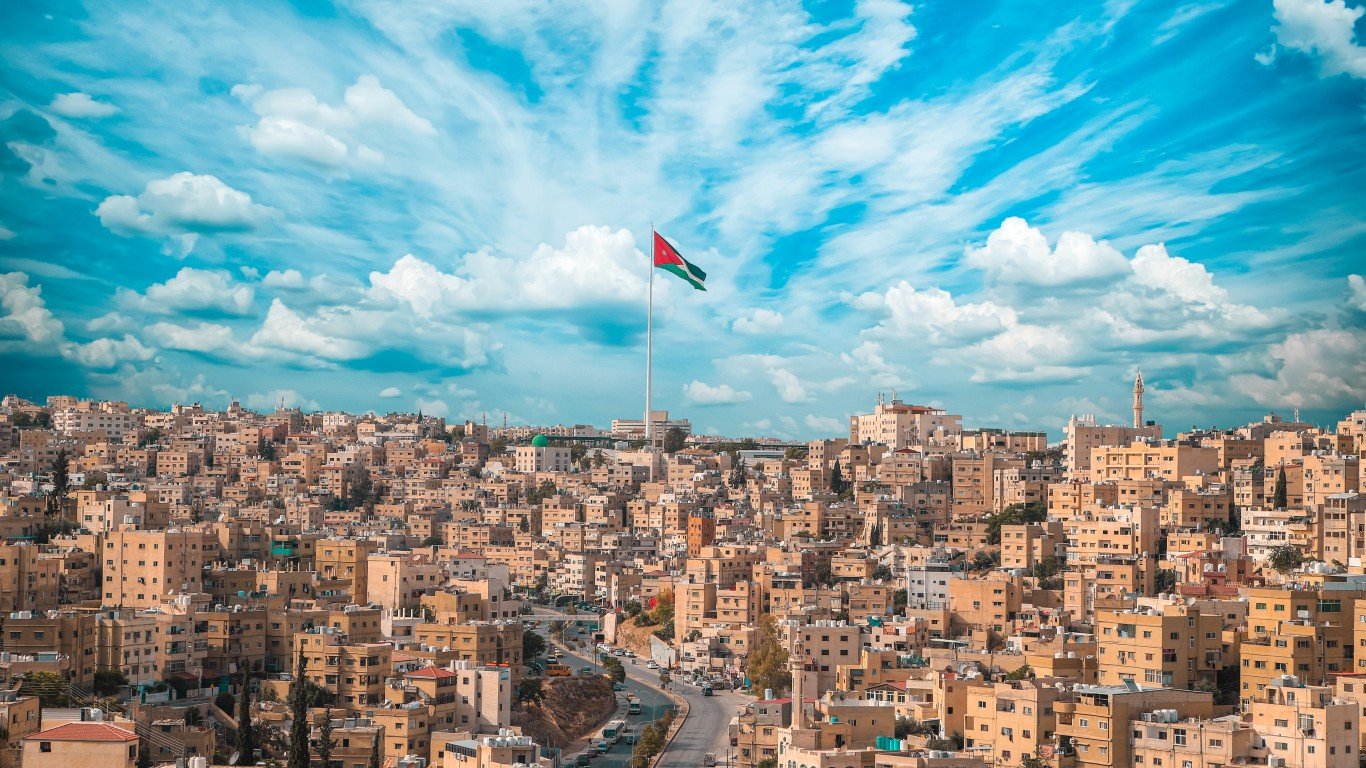
6. Jordan
> Internet shutdowns in 2021: 4
> Individuals using the internet: 66.1% of population
> Fixed broadband subscriptions: 6.2 per 100 people
> Total population: 10.2 million
Like neighboring Syria, Jordan regularly shuts down internet access during examination periods to suppress students’ ability to digitally cheat on exams. In addition to other internet blackouts, the Jordanian government reportedly also throttles internet speeds in an effort to lead the public to blame social media platforms for slow connections instead of government-controlled ISPs and mobile services providers.
[in-text-ad-2]
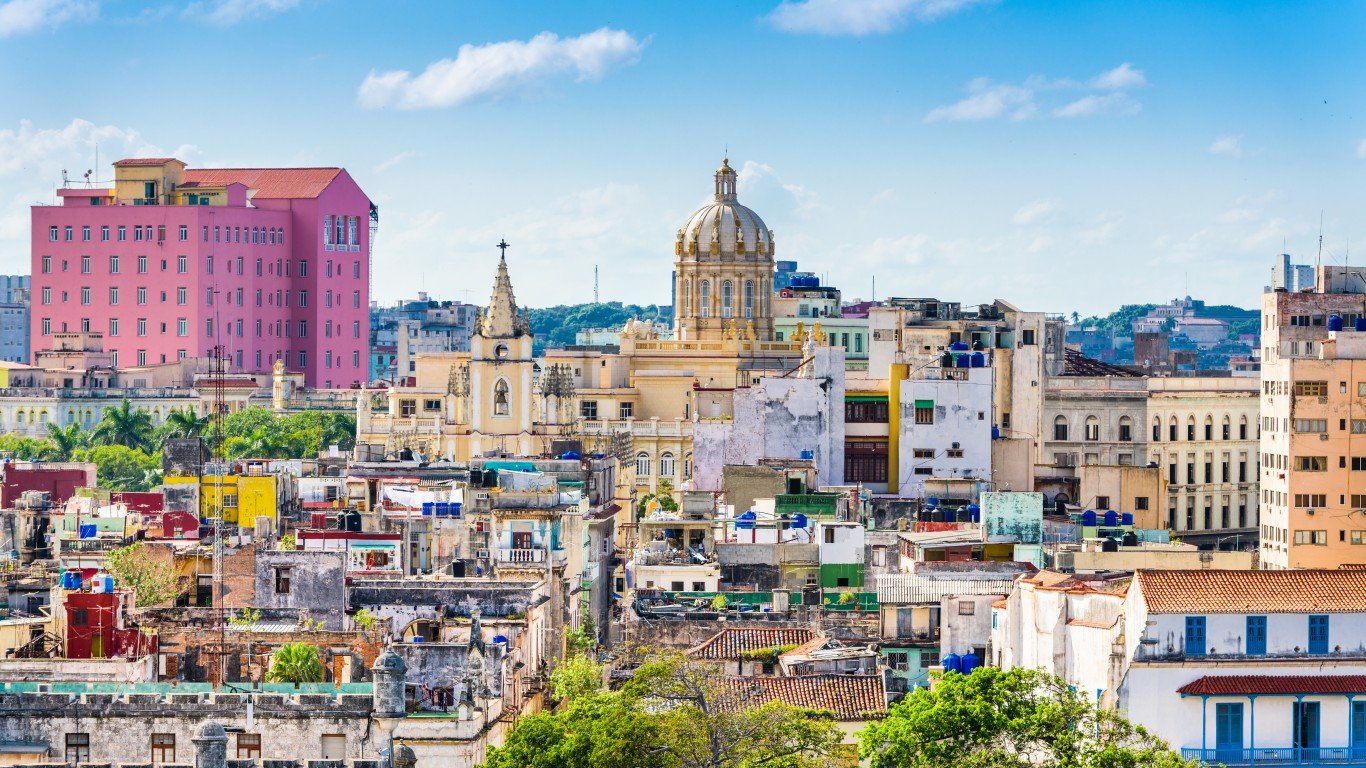
5. Cuba
> Internet shutdowns in 2021: 4
> Individuals using the internet: 74.0% of population
> Fixed broadband subscriptions: 2.0 per 100 people
> Total population: 11.3 million
Responding to protests over a crippling economic crisis, the Cuban government blocked the internet or restricted social media access last year to prevent citizens from organizing demonstrations online. Cubans only attained access to mobile internet service in December 2018 through data plans purchased from Etecsa, the country’s state-owned telecom.

4. Sudan
> Internet shutdowns in 2021: 5
> Individuals using the internet: 28.4% of population
> Fixed broadband subscriptions: 0.1 per 100 people
> Total population: 43.8 million
Like Syria and Jordan, Sudan blocks internet access during school exams to prevent students from cheating. But more insidiously, Sudan also periodically throttles or blocks internet and mobile communications during periods of unrest, as it did last October during the country’s military coup.
[in-text-ad]
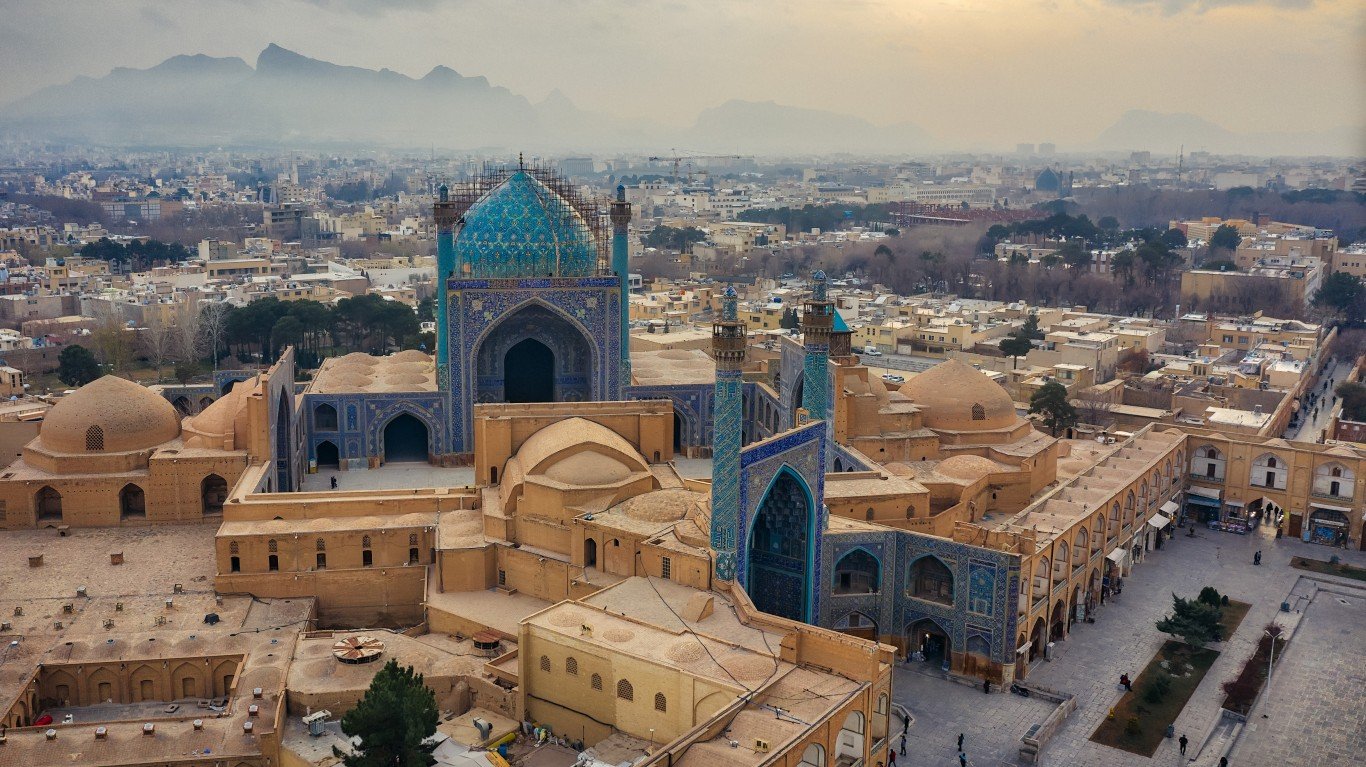
3. Iran
> Internet shutdowns in 2021: 5
> Individuals using the internet: 84.1% of population
> Fixed broadband subscriptions: 11.4 per 100 people
> Total population: 84.0 million
Last year, Iran temporarily disrupted mobile phone internet access amid violent water-shortage protests erupted in the southwest of the country. Iranian officials regularly order local internet shutdowns during periods of unrest, and citizens, including journalists and bloggers, are regularly hunted down and arrested for content they post online.

2. Myanmar
> Internet shutdowns in 2021: 15
> Individuals using the internet: 35.1% of population
> Fixed broadband subscriptions: 1.3 per 100 people
> Total population: 54.4 million
Two months after a military coup in Myanmar in February of last year, internet access was blocked for weeks. The military junta has increased the monitoring and tracking of critics’ online activity, and it routinely orders mobile and wireless providers to temporarily shut down access.

1. India
> Internet shutdowns in 2021: 106
> Individuals using the internet: 43.0% of population
> Fixed broadband subscriptions: 1.7 per 100 people
> Total population: 1.4 billion
The world’s largest multiparty democracy has in recent years leaned in to Hindu nationalism under Prime Minister Narendra Modi, and it regularly imposes regional internet shutdowns, mostly during times of regional political instability, but also during elections, protests, religious holidays, eruptions of communal violence, and during exam periods to curb students from cheating.
Methodology
To determine the countries where the government shuts down the internet, 24/7 Wall St. reviewed data on internet shutdowns from the digital civil rights non-profit Access Now’s The Return Of Digital Authoritarianism, Internet shutdowns in 2021. Countries were ranked based on the number of reported government-imposed internet shutdowns in 2021. In the case of a tie, the country with the larger populations was ranked higher.
Only countries with at least two reported government-imposed shutdowns in 2021 were included. Supplemental data on the percentage of individuals using the internet, the number of fixed broadband subscriptions per capita, and the total population are from the World Bank and are for 2020.
Sponsored: Want to Retire Early? Here’s a Great First Step
Want retirement to come a few years earlier than you’d planned? Or are you ready to retire now, but want an extra set of eyes on your finances?
Now you can speak with up to 3 financial experts in your area for FREE. By simply clicking here you can begin to match with financial professionals who can help you build your plan to retire early. And the best part? The first conversation with them is free.
Click here to match with up to 3 financial pros who would be excited to help you make financial decisions.
Thank you for reading! Have some feedback for us?
Contact the 24/7 Wall St. editorial team.
